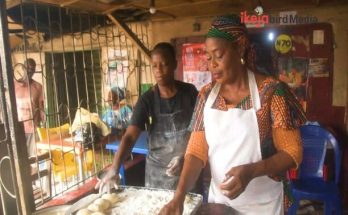By Bababunmi Agbebi
Edited by Sunkanmi Adewunmi
Across the world, conversations around safer roads and sustainable urban mobility continue to gain momentum. Road safety is not merely a transport concern; it is a public health, environmental, and developmental priority that affects every citizen. In Nigeria, particularly in a bustling metropolis like Lagos, the subject resonates deeply as communities, organisations, and government agencies unite to promote safer streets for all.
A global campaign initiated by the World Health Organization (WHO) has long underscored the need to reduce vehicular speeds in urban environments. The message is simple yet powerful, slower streets save lives. When vehicles travel at 30 km/h or less in areas where people and traffic interact, the risk of severe injuries and fatalities decreases dramatically. Such “streets for life” enable children to walk safely to school and residents to enjoy their neighbourhoods without constant fear of speeding vehicles.
This global movement aligns closely with Nigeria’s road safety vision and ongoing efforts by agencies such as the Federal Road Safety Corps (FRSC), state governments, and community groups. Lagos, known for its vibrant energy and dense traffic, is also home to some of the country’s most innovative road safety initiatives. From improved pedestrian crossings and stricter traffic enforcement to public education campaigns and urban redesigns, the city is taking meaningful steps towards safer mobility for all.
The broader objectives of this global awareness effort go beyond reducing speed limits. They seek to:
- Encourage governments at all levels to adopt and enforce 30 km/h speed limits in areas where people and traffic mix.
- Mobilise community support for low-speed, people-friendly urban spaces that promote health, sustainability, and inclusivity.
- Support the goals of the Decade of Action for Road Safety (2021–2030), which aims to reduce road traffic deaths and injuries by at least 50%.
These principles tie directly into the United Nations’ Sustainable Development Goals (SDGs), particularly those related to good health, quality education, sustainable cities, and climate action. By reimagining streets as shared, human-centred spaces rather than high-speed corridors, cities like Lagos can strengthen their commitment to these global objectives.
Every driver, pedestrian, cyclist, and passenger has a role to play. Whether it’s obeying speed limits, using pedestrian bridges, maintaining vehicles, or supporting awareness programmes, safety begins with individual responsibility. As the saying goes, safety for one is safety for all.
The path to safer roads in Nigeria is one of collective effort, one where policy meets practice, and where every citizen contributes to creating streets that truly serve life.








